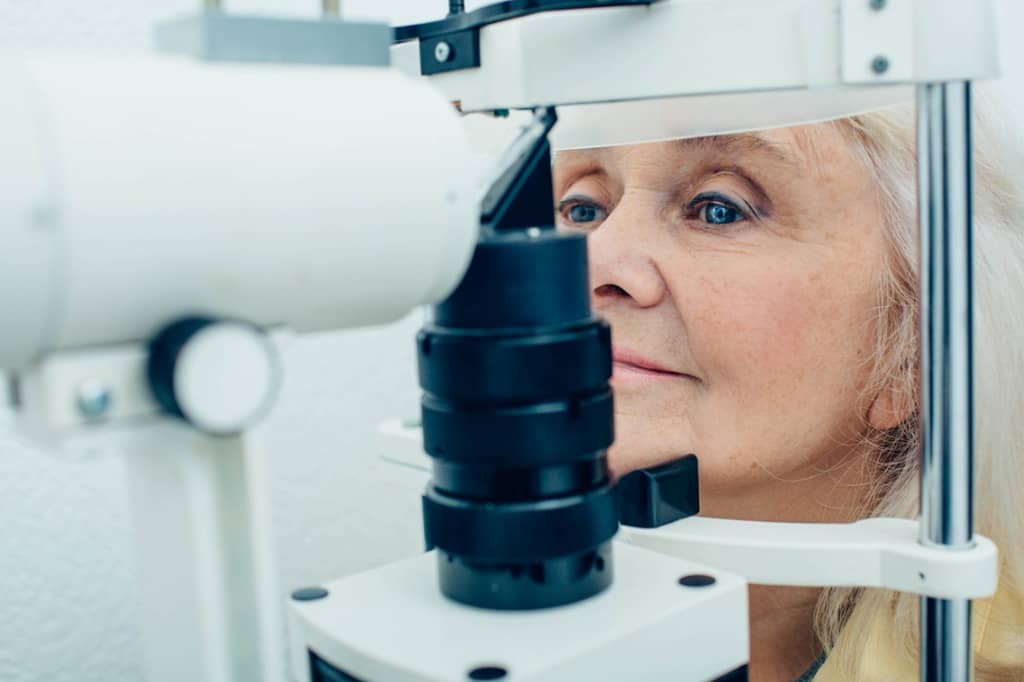Am I a Good Candidate For LASIK?
Written by: Keith F. Dahlhauser, MD
If you’ve worn glasses or contacts most of your life, chances are you’ve considered LASIK eye surgery. LASIK is a form of vision correction surgery that has been around since 1994 and is still a popular treatment more than 28 years later. If you’re tired of glasses and contacts, LASIK might be the right choice for you.
What is LASIK Eye Surgery?
LASIK eye surgery is a laser surgery designed to correct vision problems. The procedure is performed by an ophthalmologist who will use the specialized LASIK laser to reshape the cornea, the clear tissue covering the front of your eye. LASIK improves vision by correcting common problems such as:
- Nearsightedness (myopia)
- Farsightedness (hyperopia)
- Astigmatism
People with normal vision have a cornea that bends light evenly as it comes into the eye. However, when someone has a vision problem, their cornea does not bend light as it should, causing blurred vision. Glasses and contact lenses can provide a temporary fix but may be inconvenient to maintain and wear daily. LASIK eye surgery can permanently correct your eyesight, giving you freedom from glasses and contacts.
Who is a Good Candidate for LASIK Eye Surgery?
To be a good candidate for LASIK eye surgery, you:
- Must be at least 18 years old
- Should have a stable vision prescription
- Should be in good overall health
While having dry eyes may prevent you from being an ideal candidate, treatment options can help improve your eyes’ moisture enough to qualify for treatment. Some patients may have dry eyes due to the use of contact lenses. If dryness goes away once you stop using contacts, you may still be a good candidate for LASIK.
Additionally, your corneas should be thick enough to support the laser reshaping, but your ophthalmologist will measure this during your consultation. Before determining if you are qualified to have surgery, your ophthalmologist will perform a series of eye examinations and collect a detailed medical history.
Possible Disqualifying Factors for LASIK Surgery
While LASIK is a common, popular, and relatively safe procedure, not everyone is a good candidate. There are a few factors that may deter you from being a good candidate, such as:
Age
While you must be at least 18 years old for LASIK surgery, it is best to wait until you are at least 21 years of age. This is because the eye continues to grow and change until around age 21. Before this time, your vision is still unstable and may change as you grow older. However, If you have had a stable glasses prescription for a few years before the age of 18, you might be stable enough to proceed with LASIK surgery.
Autoimmune Diseases
If you have an autoimmune disease, such as rheumatoid arthritis or lupus, you may not be a good candidate for LASIK surgery. Other conditions such as diabetes, glaucoma, and cataracts can also affect your candidacy.
Dry Eye Syndrome
Autoimmune diseases can also cause dry eye syndrome, which may disqualify you from LASIK eye surgery. Sjogren’s syndrome, Graves disease, or any other disorder that results in chronic dry eyes can make you a poor candidate for LASIK surgery. Having dry eyes can delay your healing process and increase your chances of developing an infection.
Pregnancy
If you are pregnant or nursing, you will not be a good candidate for LASIK surgery. This is because the hormones present in your body can change the focus of your eyes while you are pregnant or breastfeeding. In addition, medications used during LASIK surgery might be absorbed through mucous membranes, posing a risk to your baby.
Unstable Vision
Those with fluctuating contact or glasses prescriptions may not be good candidates for LASIK surgery. Your prescription must remain stable before you receive LASIK surgery. Otherwise, your vision could become worse once the surgery is completed. It is recommended that your prescription stay the same for at least one year before you undergo LASIK surgery.
Not Having Realistic Expectations
It is important to have realistic expectations about the results of your LASIK surgery. LASIK eye surgery may not cure all of your vision problems, and you could still require reading glasses or contact lenses on occasion. However, while your vision may not be perfect after the surgery, it will most likely be improved. For example, about 98% of those with low-to-moderate nearsightedness who had LASIK eye surgery could see 20/40 vision or better.
In some cases, a second LASIK enhancement surgery may be needed to fine-tune your vision. At the Cascade Eye & Skin Center, LASIK enhancement is covered at no cost for the first year after your initial LASIK surgery. Once a few months have passed since your first LASIK surgery, your candidacy can be reassessed to see if a LASIK enhancement is necessary.
LASIK at Cascade Eye & Skin Centers
Cascade Eye & Skin Centers offer complete optical services dedicated to the highest standards of quality and value. If you are considering LASIK surgery, please contact one of our nearest locations for a consultation with a member of our team like Keith F. Dahlhauser, MD.
Dr. Dahlhauser is board-certified in ophthalmology and is a fellow of the American College of Surgeons. Currently, he is the president of Cascade Eye & Skin Centers. He would be happy to answer any questions you have about the surgery and help you determine if you are a good candidate for LASIK.




